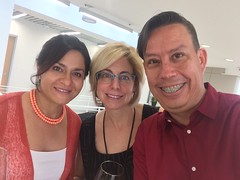 When my colleague Marcela Lopez-Vallejo told me her long-time coauthor and friend Dr. Debora VanNijnatten (Associate Professor and Chair of the Political Science department at Wilfrid Laurier University) would be coming to our campus of CIDE for a short visit, I was thrilled. Debora and I know each other from a very long time ago, we’ve been friends and colleagues for a very long time, and though we haven’t coauthored anything together, we’ve both been aware of each other’s work for pretty much all of my academic career.
When my colleague Marcela Lopez-Vallejo told me her long-time coauthor and friend Dr. Debora VanNijnatten (Associate Professor and Chair of the Political Science department at Wilfrid Laurier University) would be coming to our campus of CIDE for a short visit, I was thrilled. Debora and I know each other from a very long time ago, we’ve been friends and colleagues for a very long time, and though we haven’t coauthored anything together, we’ve both been aware of each other’s work for pretty much all of my academic career.
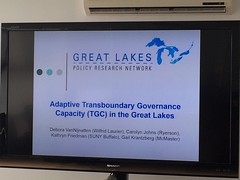 I met Debora at a workshop organized by El Colegio de Mexico on North American studies, when I was just starting my PhD. So it was very nice to see each other again now in this setting. Granted, I had seen Debora a few times throughout the years (most recently at the International Studies Association meeting where she presented a very preliminary version of this paper, a couple of years ago). But this was the first time we actually had time to hang out, and do a series of scholarly events.
I met Debora at a workshop organized by El Colegio de Mexico on North American studies, when I was just starting my PhD. So it was very nice to see each other again now in this setting. Granted, I had seen Debora a few times throughout the years (most recently at the International Studies Association meeting where she presented a very preliminary version of this paper, a couple of years ago). But this was the first time we actually had time to hang out, and do a series of scholarly events.
She was also kind enough to host a Tertulia CIDE, one of the social events we have created as a model of public outreach to high school students, and to strengthen the ties within our own undergraduate students. Anyway, the paper Debora presented was the analytical framework of her multi-institutional, cross-border large project on indicators of transboundary water governance across the Great Lakes. Since I also had a chance to meet the co-principal investigator of Dr. VanNijnatten (Dr. Carolyn Johns, Ryerson University) at the Water Centric Cities conference I presented at earlier this past month, I already knew about the project, and had read a version of this paper. So it was all very well timed.
Debora’s paper and project focuses on transboundary water governance in the Great Lakes because it’s a great example of cooperation across the border. The project is necessary because we know very little about the environmental issues in the Great Lakes, although we do know 1% of the water is renewable. Deb mentioned that there is not a whole lot of good governance, and this project creates governance indicators that evaluate what goes into the system. The preliminary conclusions from her talk indicate that institutions and networks are foundational and fundamental to the resource governing process. My main comments on the paper and the project focused on the role of non-state actors in the governance system, and the possibility of institutional erosion (if cross-national and cross-border networks aren’t resilient enough we may find that there might be an absence of robust governance and incidences of institutional deterioration and erosion).
A few photos from the seminar can be seen below.
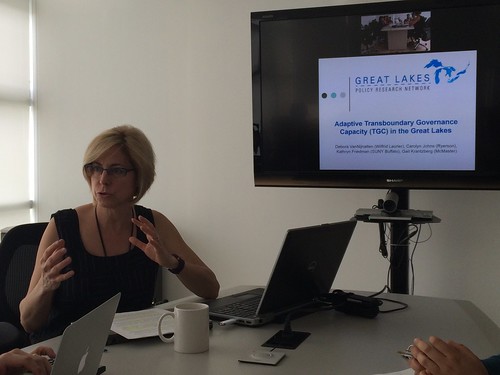
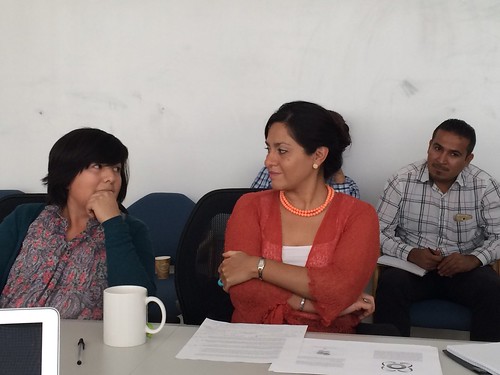
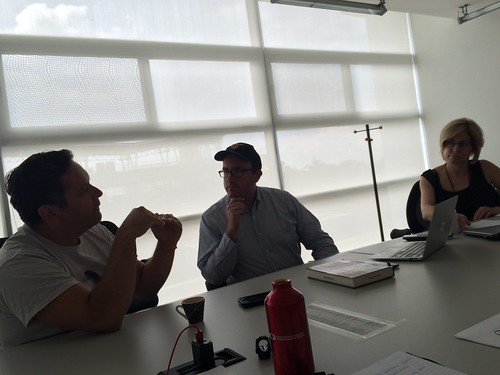
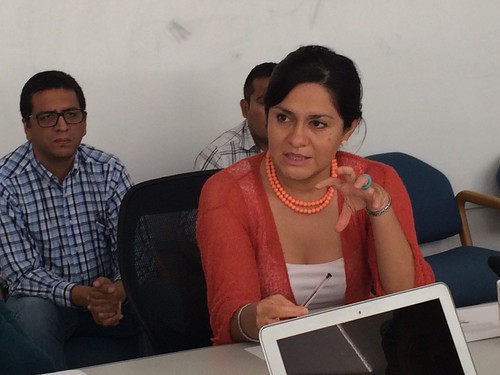

0 Responses
Stay in touch with the conversation, subscribe to the RSS feed for comments on this post.